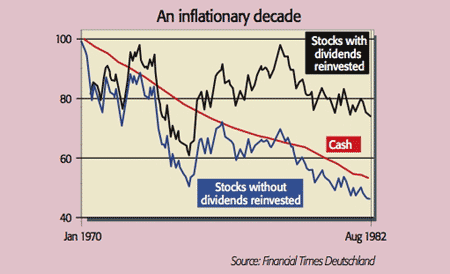
Stockmarkets reacted to the Fed’s latest round of quantitative easing (QE2) “in classic Pavlovian fashion”, says Tim Price of PFP Wealth Management. “Ring the dinner bell announcing fresh liquidity, and they will rally in response.”
Never mind poor fundamentals: after all, yet more money printing shows that the Fed thinks the economy is in lousy shape. “Euphoria sponsored by liquidity provision” propelled the S&P 500 and the FTSE 100 to their highest levels in over two years last week.
But plenty of factors threaten the QE-induced rally in the short term, as markets’ setback this week has shown. Investors have had a reminder that “everything on the planet is not hunky-dory”, says Alan Abelson in Barron’s. Europe’s debt crisis has flared up again and China’s unexpectedly strong inflation points to higher interest rates and a slower economy. In America, the fiscal stimulus is going into reverse.
In the medium term, the chief threat for investors following all this money-printing is a jump in inflation, says FT Deutschland. That’s bad news for stocks, as the 1970s showed. Between 1970 and 1982 the German market was down by 26% in inflation-adjusted terms – even after reinvesting dividends (see chart). Without dividends, stocks did worse than cash. Barclays Capital also notes that since 1929 US stocks have produced an annual average total real return of 0.34% during periods of high inflation (over 4%).
There are two reasons inflation hits stockmarkets, says FT Deutschland. “As a rule” inflation becomes more volatile the higher it is. That creates uncertainty and hampers confidence in the economy. The other problem is that high inflation has to be squeezed out of the system by a determined central bank. In the early 1980s, the Fed under Paul Volcker raised interest rates sharply to conquer inflation. But this is “brutal” for equities as dearer money hits both profits and valuations.
Given all this, defensive stocks remain a solid bet, especially since they are typically found in industries able to raise prices to keep pace with inflation – energy and utilities, for instance. With fears of inflation, currency debasement and general uncertainty likely to be with us for some time, gold – the ultimate store of value – remains a solid hold.